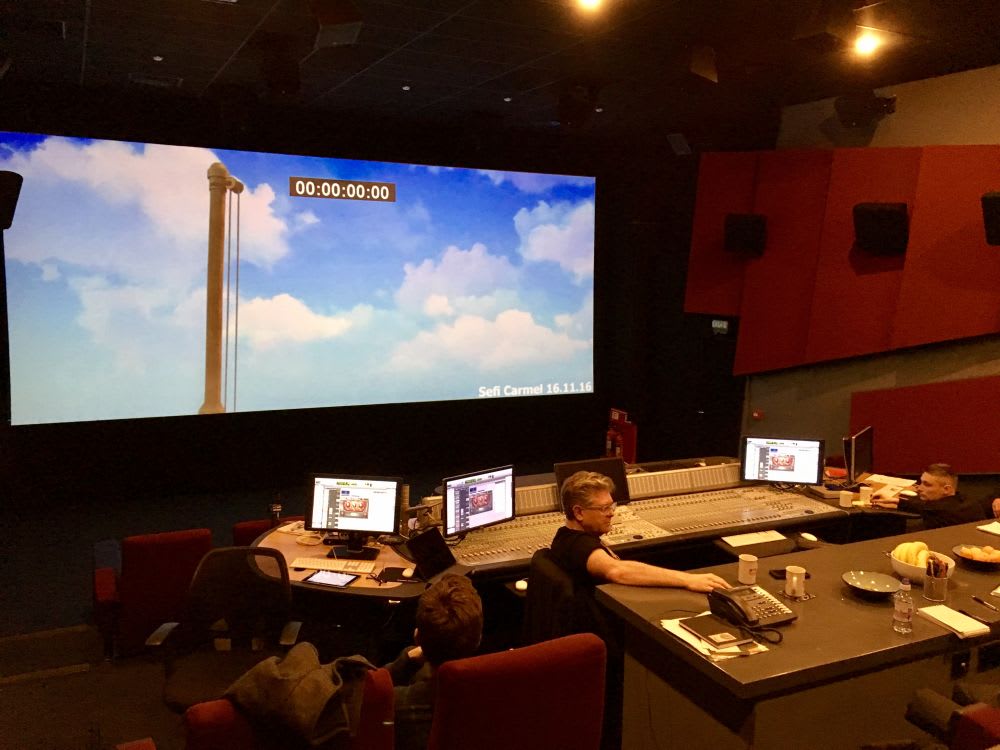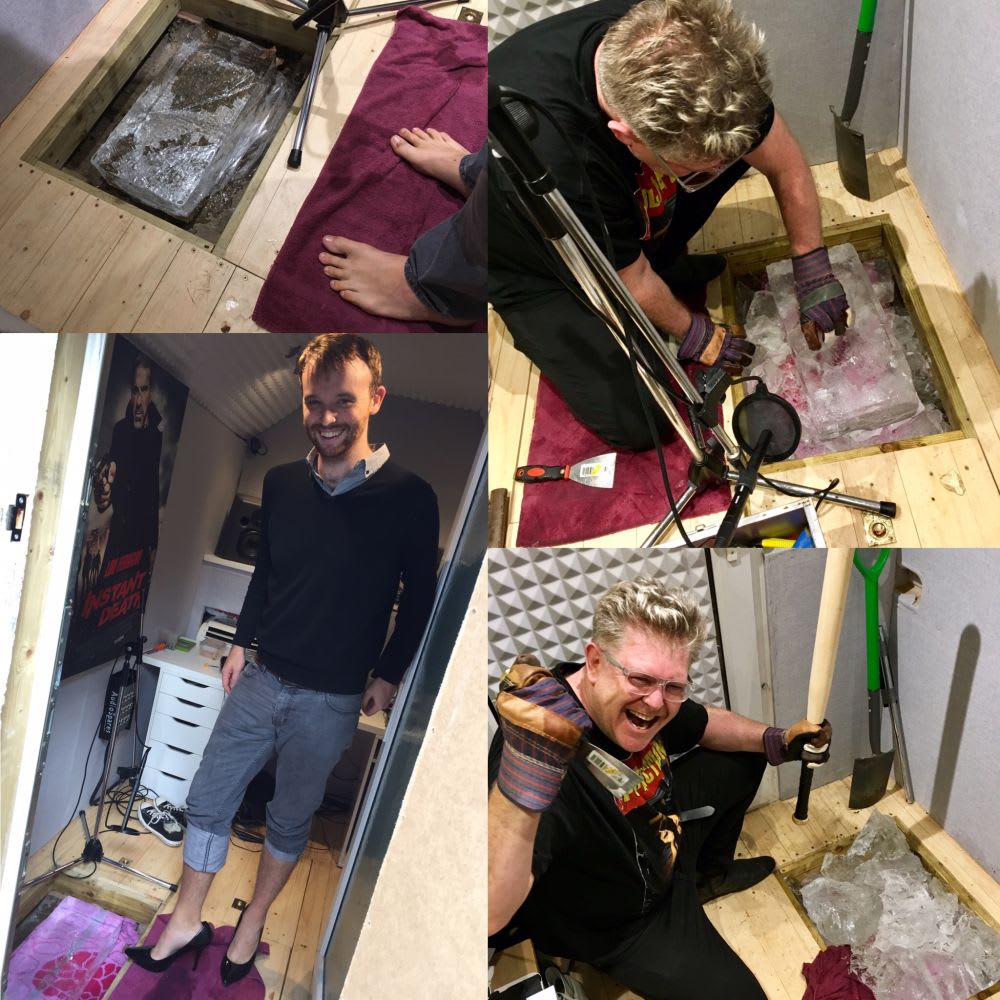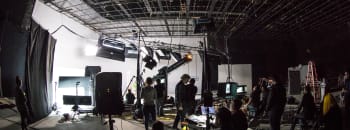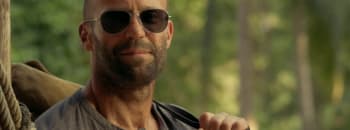On Set With... Sefi Carmel, experienced film composer
This is part of a series of KFTV interviews with film, TV and commercial production figures about their filming experiences
By Melissa Kasule 9 Mar 2022

KFTV talks to Sefi Carmel from his high-tech studio about the world of sound composing and sound design in film and TV production, including producing soundtracks and sound effects for projects from Netflix, Warner Bros. and the BBC.
Sefi Carmel, a UK-based composer, works in the unique hybrid role of sound composer and sound designer under his banner Soundtrack Creation. The film veteran's credits include A Hitman in London, Netflix action film Legacy of Lies, Harry Potter and the Philosopher's Stone, and a series of BBC Wildlife Specials with David Attenborough. His most recent projects are the Netlfix Original film Secret Magic Control Agency and the 2022 Bejing Winter Olympics.
“In many films, sound mixing and composing is not done by the same team and it can be to the detriment of the final project, which can be cluttered with the music and sound effects fighting with each other. Sound composing and design can instead complement the experience of listening; you’re telling different sides of the story, but they both equally contribute to telling the story.”
“I wanted to launch a company that took ownership of everything, not just composing a score or sound design, but everything that comes out of the speakers, which is the ethos of Soundtrack Creation. I’ve seen as a dubbing mixer and heard stories as well of composers sitting at the mixing desk and having elbow fights over the effects versus the music. In reality, it should be whatever serves the film best and there is that advantage when that is done under one roof with one team.”

Sefi Carmel working on the animation film The Snow Queen. Credit: Courtesy of Sefi Carmel
With a career-spanning more than 20 years, Sefi has worked on a variety of projects, including Netflix’s action-thriller Legacy of Lies and Kevin Reynolds’ period film Tristan & Isolde produced by Ridley Scott’s banner Scott Free Productions.
“Since Tristan & Isolde was set in the year 600, all of the sounds are different to modern sounds - everything is made out of wood rather than the modern use of metal and plastic”, he explains. “In effect, you are creating this whole world of old sounds where every single detail must fit that period.”
He explains that for recreating sounds from battle scenes in that film of human flesh being stabbed “we bought a half side of beef, which we hung up in the studio. We put microphones in the flesh or very close to it and continuously shot arrows and poked swords into it, creating great stabbing effects."
The composer highlights a host of other extraordinary lengths and practical challenges he's faced to capture a variety of sound effects from his London-based studio. “The hardest thing to record was attempting to create the sound of a 30-foot fire monster using a big fire pit that I built in in my garden. It was the process of trying to safely set alight huge, heavy beams of wood, waving them about with microphones around them, and managing that, with my children watching on, confused in the background.”
"We also had a scene of trolls walking, so to capture that we ordered huge blocks of ice that we smashed and stomped on barefoot."

Sefi Carmel working with ice blocks from his studio. Credit: Sefi Carmel
On a new big project that he's working on, Sefi reveals that it depicts an array of cultures, and has emerged as a musical journey outside the four walls of Sefi's studio, gathering different recordings across the world.
"We recorded remotely some Turkish percussionists, middle eastern woodwinds from Israel, joined by string instruments from Egypt. In addition, we recorded classical string instruments from Italy and also wanted a volcanic Macedonian vibe so I recorded a tuba player from Macedonia and a zona and coval, which are Macedonian woodwind instruments."
He adds, "during the process, I was reflecting in the eighties or even the nineties it would have been hundreds of thousands of dollars just in flights for such an exercise with a very hefty carbon footprint, but now you can do it all virtually."
Sefi who has worked closely with directors for productions and has even served as a producer on projects, illustrates the required relationship between the composer and filmmaker to deliver an impressive score. "Filmmaking as an ensemble art form where music and sound combine is a very important piece," he says.
"Really successful films and cinema endeavours have had very strong relationships between director and composer. You have, Bernard Herman and Alfred Hitchcock, John Williams and George Lucas, Stanley Kubrick and György Ligeti or Christopher Nolan and Hans Zimmer — it's about relationships.
"A composer composing a score for a film is essentially commissioned art that is serving somebody else's vision. The more immersed you can be in that vision and the more you can internalize it and make it part of yourself through discussion with the other creatives, through watching the movie over and over again and through what is becoming so rare, which is thinking time, especially when we are in a world of fast turnarounds."
Latest news & features
Promote your services with KFTV
Choose from three profile types - Basic, Silver and Gold
Create ProfileWe offer a range of display advertising opportunities.
Learn More


